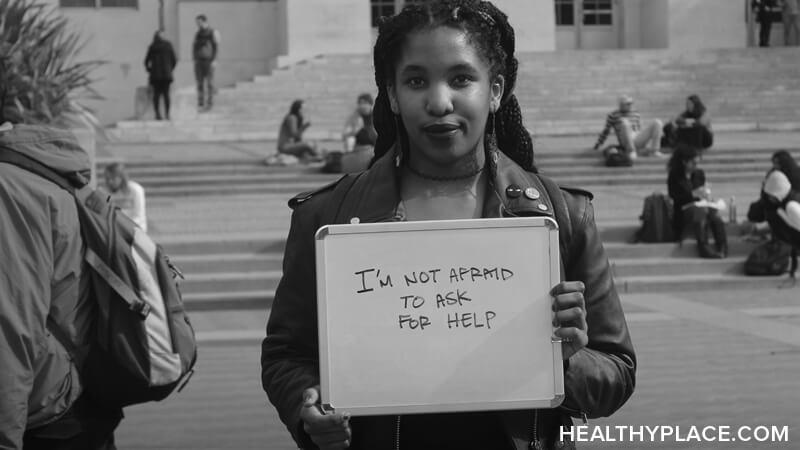Facing Stigma: Patients, Professionals, and the Public

Unfortunately, stigma is real, and it's dangerous, which is why facing stigma is so important. Stigma is visible in public, and it comes full circle affecting patients and professionals alike. Stigma keeps mental illness in the dark and misunderstood, and often prevents sufferers from seeking the help they need.
Facing Self-Stigma Regarding My Diagnosis
Before my diagnosis of schizoaffective disorder, I really didn't know anything about mental health and "facing stigha" wasn't part of my life. My only point of reference were depictions of mental illness in the media, which I now know were almost always inaccurate.
Soon after being admitted to a treatment center, a fellow patient suggested that my symptoms were similar to schizophrenia. I was terrified. The only image of schizophrenia was of people living on the streets talking to themselves. I thought I was going to be disabled, and that I would never be the same.
Well, it was true that I would never be the same (but in a good way). The rest was some serious catastrophizing. I've learned a lot since then. I progressed in my recovery and even started working in the mental health field.
Facing Stigma Held By Patients
Working in mental health, I have seen many patients carrying their own stigma. Many underestimated themselves thinking their illness will prevent them from living a successful life. Some had stigma regarding diagnoses different from their own.
My best way of encouraging those who underestimate themselves is by leading by example. I try my best to pursue the things I love despite my mental illness. However, sometimes even simple things can be eye-opening for some. One patient I helped was shocked that I have schizoaffective disorder and drive.
Facing Stigma Held by Professionals
I have worked at three different mental health agencies, and I have been surprised by the stigma expressed by professionals. The agency I work for now is by far the best environment I have worked in. The majority of the staff are peers.
At the previous agency I worked for, the staff would not use person-first language even though that's been standard in the mental health field for a while now. They used a lot of labels and assumed every patient must fit into this strict mold of symptoms for each diagnosis. Almost everyone was labeled as disabled which left many feeling hopeless.
Facing Stigma Among the Public
Considering my lack of knowledge before my diagnosis, I'm afraid that may be a good portion of the public thinks the way I did. The inaccurate images I had of people with schizophrenia coupled with my fear of receiving a diagnosis was eye-opening.
I occasionally see stigma and hurtful posts regarding mental health on Facebook. I try not to get upset, but if I'm feeling brave I will politely correct them. Whether or not it's received well is another story. Sometimes I feel my friends think I am over-reacting and need to "loosen up", but accurate information on mental health is very important to me -- and to many others as well. It could mean the difference between someone asking for help or to continue suffering in silence.
However, I think maybe the public view of mental health is improving. I see just as many positive posts about mental health on Facebook as I do negative. Individual stories are getting more attention and celebrities are joining the conversation. I feel awareness is now more visible than in the past.
Let's keep the conversation going. If you feel comfortable, help out. You can share your story, volunteer with NAMI, or encourage people seeking help. Let's make sure others see the truth.
How do you face stigma? Please share in the comments below.
APA Reference
Rahm, M.
(2019, April 10). Facing Stigma: Patients, Professionals, and the Public, HealthyPlace. Retrieved
on 2026, January 2 from https://www.healthyplace.com/blogs/recoveringfrommentalillness/2019/4/facing-stigma-patients-professionals-and-the-public
Author: Megan Rahm
Thank you for sharing this! I love that you mention patients carrying their own stigma. This is something I come across more than people might guess. I love how your leading by example! It's so empowering for individuals to recognize their own stigma and realize they are very capable of leading successful lives.